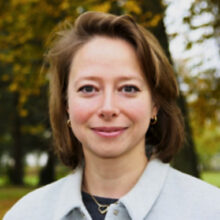Profil
 Ariane König is a senior researcher at the University of Luxembourg. She developed and leads an innovative transdisciplinary study programme, the ‘Certificate in Sustainability and Social Innovation’, that is open to students at all levels and professionals; she also built and co-led an interdisciplinary strand on sustainability as part of a doctoral school.
Ariane König is a senior researcher at the University of Luxembourg. She developed and leads an innovative transdisciplinary study programme, the ‘Certificate in Sustainability and Social Innovation’, that is open to students at all levels and professionals; she also built and co-led an interdisciplinary strand on sustainability as part of a doctoral school.
König has analysed challenges of connecting interdisciplinary research and teaching to practice in a special issue in the Journal Current Opinion in Environmental Sustainability she edited in 2016. She has recently edited the book Sustainability Science: Key Issues (Routledge 2018), positing a novel conception of transformative sustainability science for refashioning the interface of research, policy and practice. Currently she leads two research projects that serve to further develop and put into practice concepts and methods described in the book, including collaborative conceptual systems mapping and scenario approaches, engaging diverse stakeholder groups to gain new perspectives and repertoires of action on sustainability challenges.
König is a member of the national Conseil Supérieur pour un Développement Durable and of the European Statistical Advisory Committee. Before coming to Luxembourg König was employed at the Universities of Harvard and Oxford, where she conducted research and taught in post-graduate and executive training courses on technology governance. Prior to this, she learnt about the co-production of technologies and social practice working for a leading multinational life science corporation. She was a scientific consultant for the OECD, the European Commission, and EU research consortia. Ariane König was conferred her Bachelor, Master and Ph.D. Degree in Biochemistry from the University of Cambridge, Emmanuel College.

